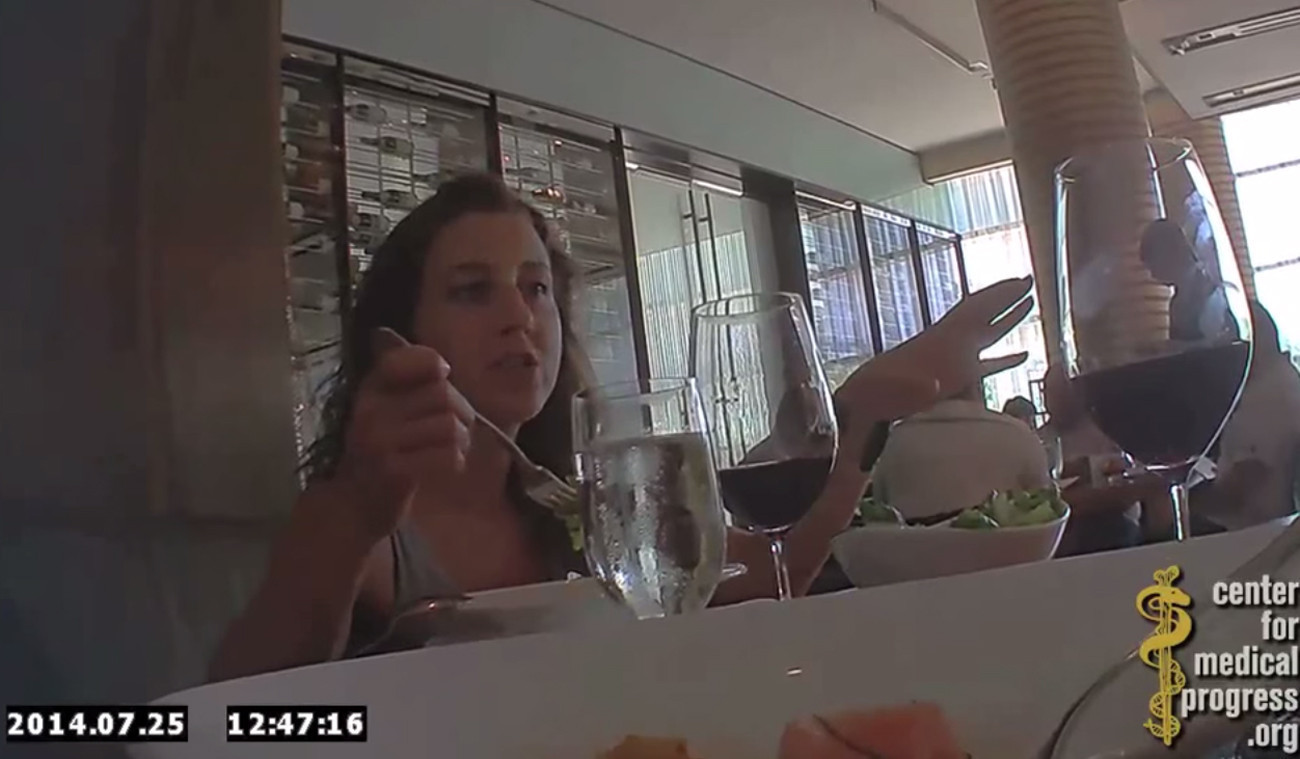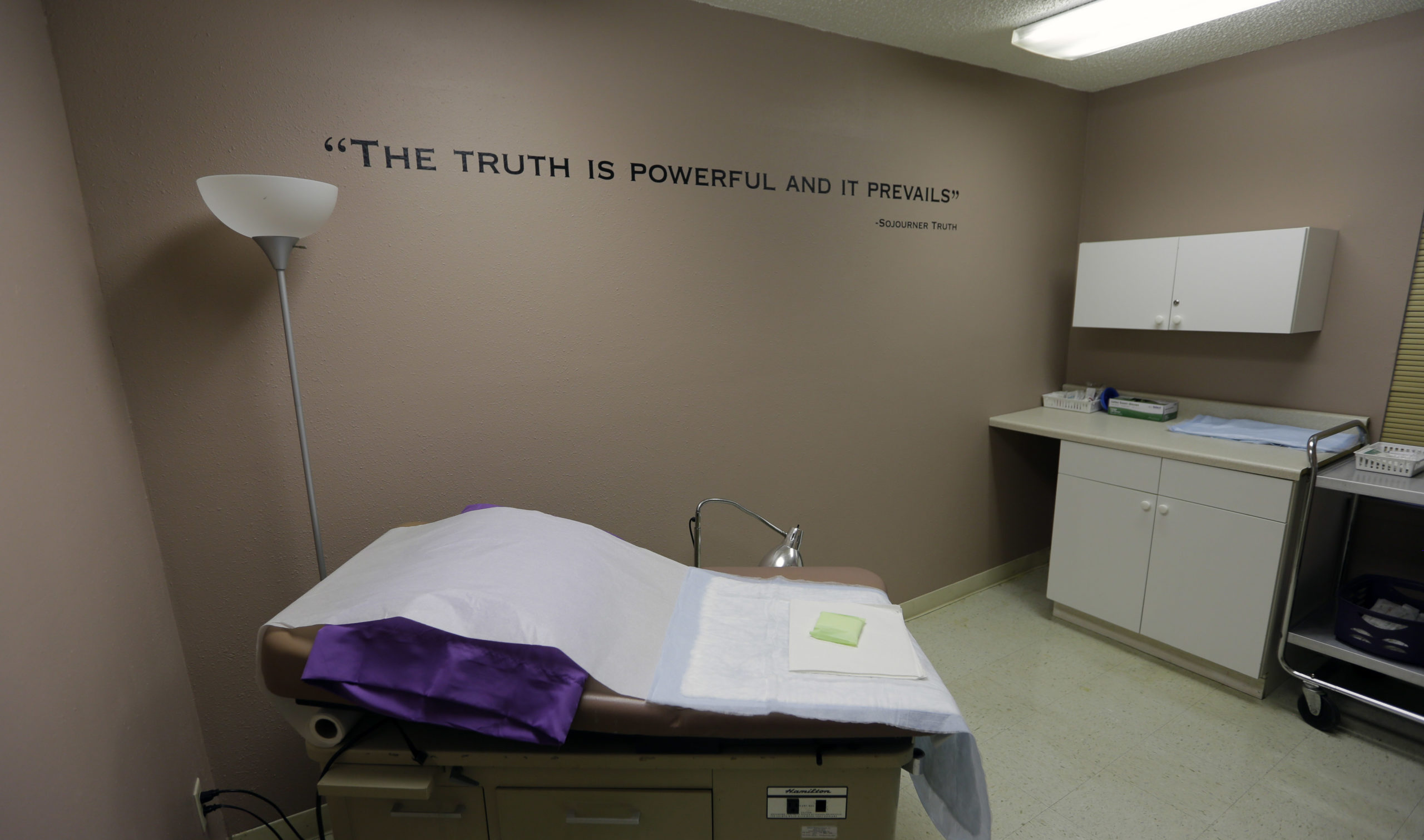
‘Baby Body Parts’ Video is a Misleading Distraction

Above: A covertly recorded video released by anti-abortion activist group the Center for Medical Progress shows excerpts of a conversation between Planned Parenthood medical research director Deborah Nucatola and activists pretending to solicit fetal tissue donations for a medical research company.
In response to a video released Tuesday by anti-abortion activist group the Center for Medical Progress, Gov. Greg Abbott has directed the Texas Health and Human Services Commission to investigate what he calls “the harvesting of baby body parts.” The video shows excerpts from a mealtime conversation between Planned Parenthood medical research director Deborah Nucatola and activists pretending to solicit fetal tissue donations for a medical research company. The videomakers’ claim that Planned Parenthood uses abortion to illegally “sell baby parts” is a misleading distraction from real issues of justice in medical research and care.
Federal law allows women to donate tissue from aborted fetuses for medical research. Clinics that collect such tissue may charge research companies a small fee for overhead costs, such as storing and transporting the tissue, but are barred from profiting from it.
The so-called harvesting of baby body parts supports research on diseases, including Alzheimer’s and Parkinson’s. It is legal. The claim that Planned Parenthood is breaking any laws by providing fetal tissue to researchers is pure applesauce.
Planned Parenthood official Eric Ferrero said in a press release yesterday that tissue donation through Planned Parenthood clinics occurs with “full, appropriate consent from patients. … There is no financial benefit for tissue donation.”
Furthermore, an analysis by Media Matters of the unedited video shows that it was deliberately edited to falsely suggest that Nucatola was helping clinics profit from fetal tissue donation.
For women who have abortions, tissue donation may be a way to find meaning in an unfortunate experience. While no patient should ever be pressured to contribute to research, such participation can be healing. Out of one’s own suffering arises the opportunity to help another person.
Anti-abortion activists won’t see it that way though. Arthur Caplan, director of the New York University Langone Medical Center’s Division of Medical Ethics, has said that “for critics of abortion, the idea of making something good from something they see as inherently evil is not something they have room for.”
Caplan, who has referred to fetal tissue research as “the ticking time bomb of medical ethics,” also argues that fetal tissue donation at abortion clinics presents a conflict of interest for clinicians because it “shifts the focus away from women and their needs.”
For example, Nucatola explains in the video that doctors may alter abortion procedures to preserve tissue for donation. Before removing the fetus from the uterus, they may change its position from head-down (vertex) to feet-down (breech). It is theoretically possible that the extra moment it takes to move that fetus presents a risky “shift of focus” from safe abortion care to effective tissue donation. In real life, though, the actual risk is minimal: Abortion is among the most common and safest surgical procedures. There is no evidence that tissue donation makes it any less safe.
The same folks who decry research on aborted fetal tissue benefit from evidence-based medical care that arises from ethically questionable research performed on living people in developing countries.
In my experience, medical care always involves conflicting interests. Although we as patients would like to imagine legions of providers dedicated only to care, what we in fact encounter in clinics and hospitals are legions of human beings. Conflicting interests abound: Different patients compete for physicians’ time, for example, and the financial interests of hospital corporations conflict with doctors’ duty to provide care to the poor. In abortion care, the interest in preserving the health and safety of women with unwanted pregnancies (as well as their living children) conflicts with what anti-abortion advocates describe as the interests of the “unborn.”
In medical research, the public benefit of evidence-based care conflicts with the interests of those communities upon whom research is performed—and research is all too often performed on communities of color. The same folks who decry research on aborted fetal tissue benefit from evidence-based medical care that arises from ethically questionable research performed on living people in developing countries.
The job of medical ethics is not to eliminate conflicts of interest—an impossible task—but to help us navigate them.
Accordingly, I would disagree with both Caplan (who believes that fetal tissue research is a key issue of our day) and Abbott (who was quick to launch an investigation based on this week’s inflammatory and discredited video). What happens to fetal tissue after an abortion is simply not a pressing ethical issue in medicine.
Important issues—issues that really matter to Texas women—abound. Twenty-four percent of Texans, including 13 percent of Texas children, still lack access to medical care. New restrictions threaten to leave poor Texas women essentially without access to safe and legal abortion care. Massive 2011 cuts to state support for family planning services have left thousands of women who previously got women’s health care at Planned Parenthood without access to birth control, mammograms and cervical cancer screening. Despite this evidence, Abbott recently signed another bill that will further defund Planned Parenthood.
An ethical focus on “women and their needs” must begin by asking women what our needs are. So far, no woman has complained of being harmed because her abortion procedure was altered to accommodate fetal tissue donation.
With so many living women being harmed by unjust health and research policies, Abbott and other Texas leaders should focus state resources not on the fate of aborted fetal tissue, but on the many issues that substantively affect women’s health.


